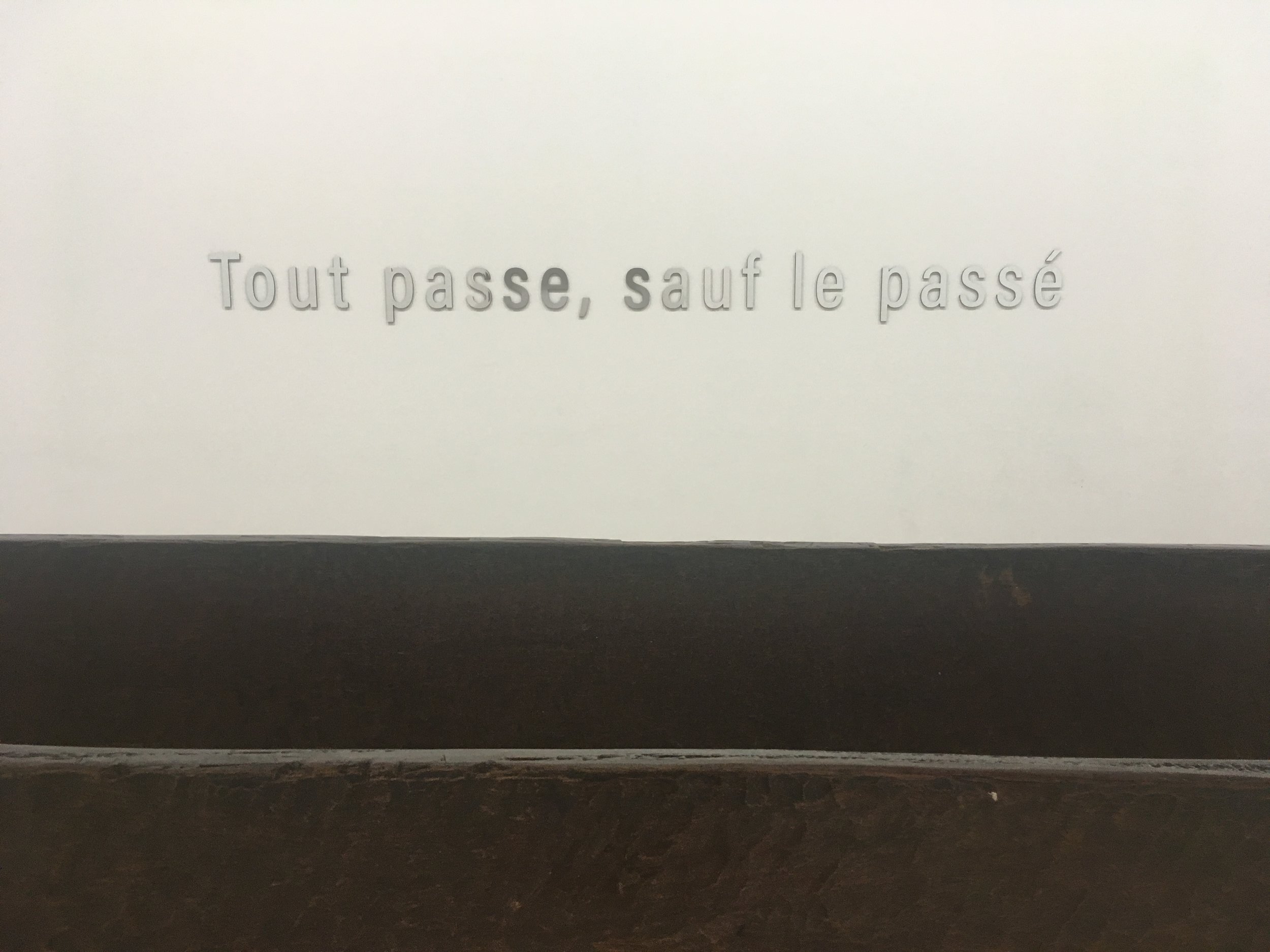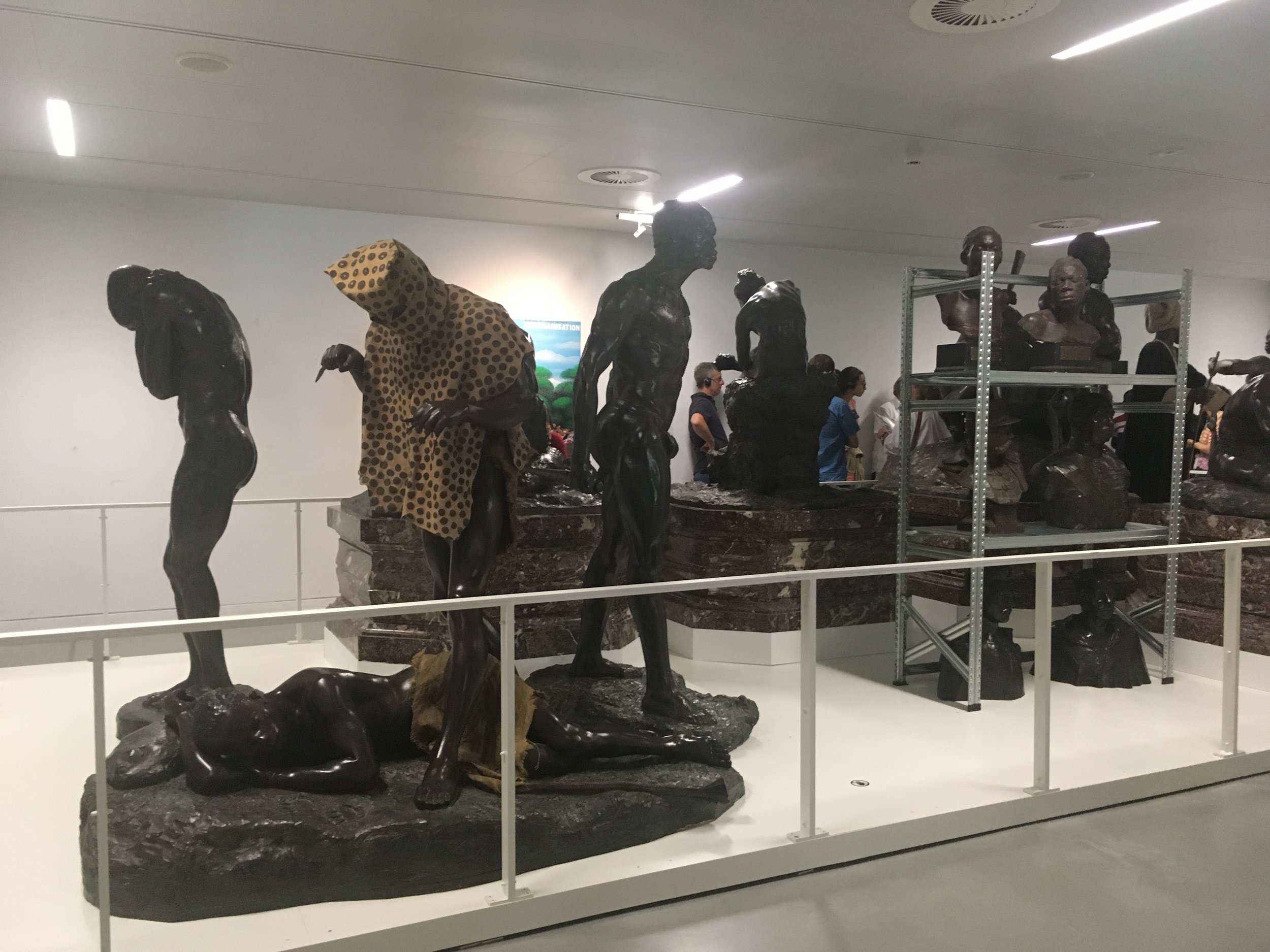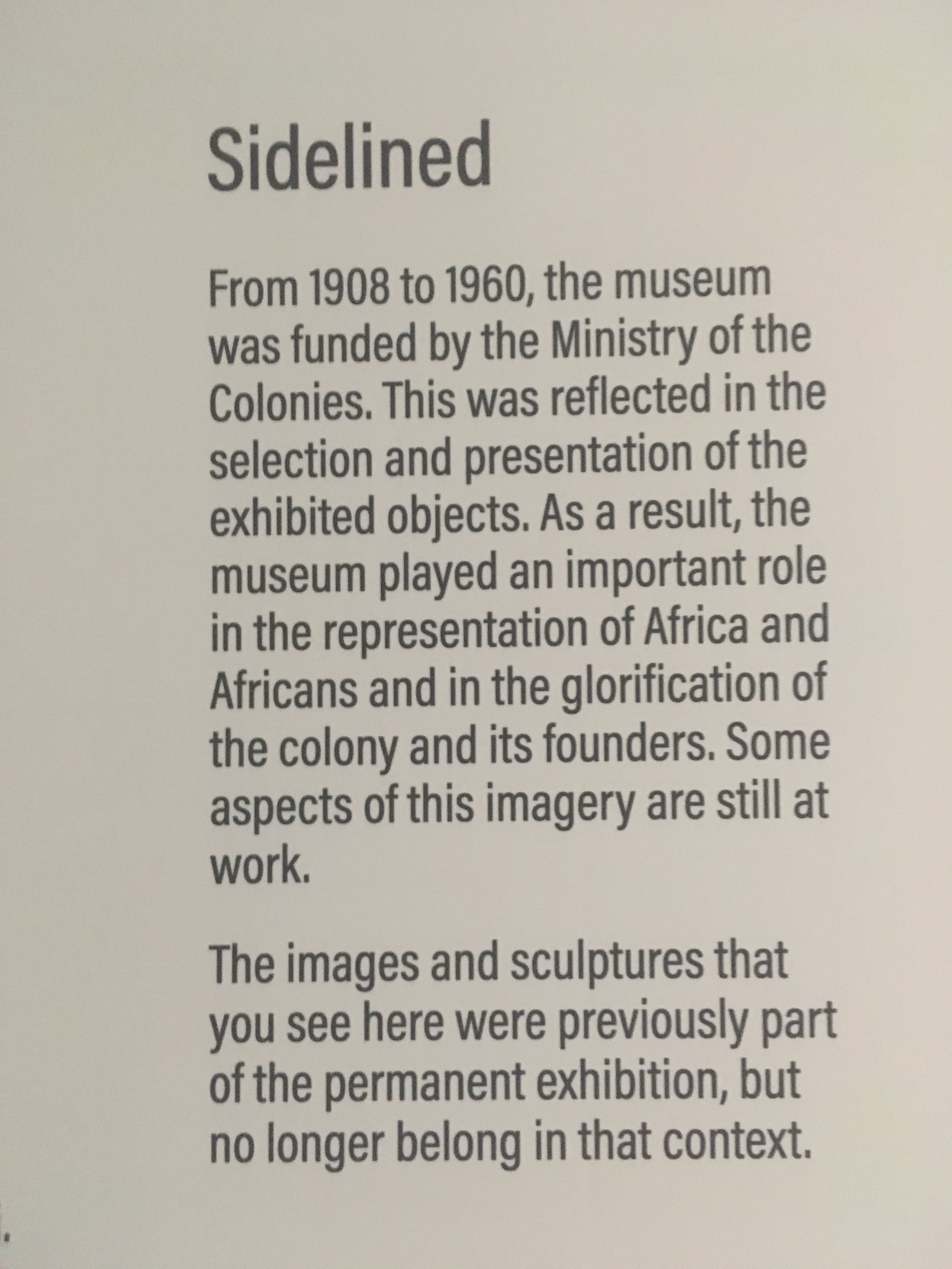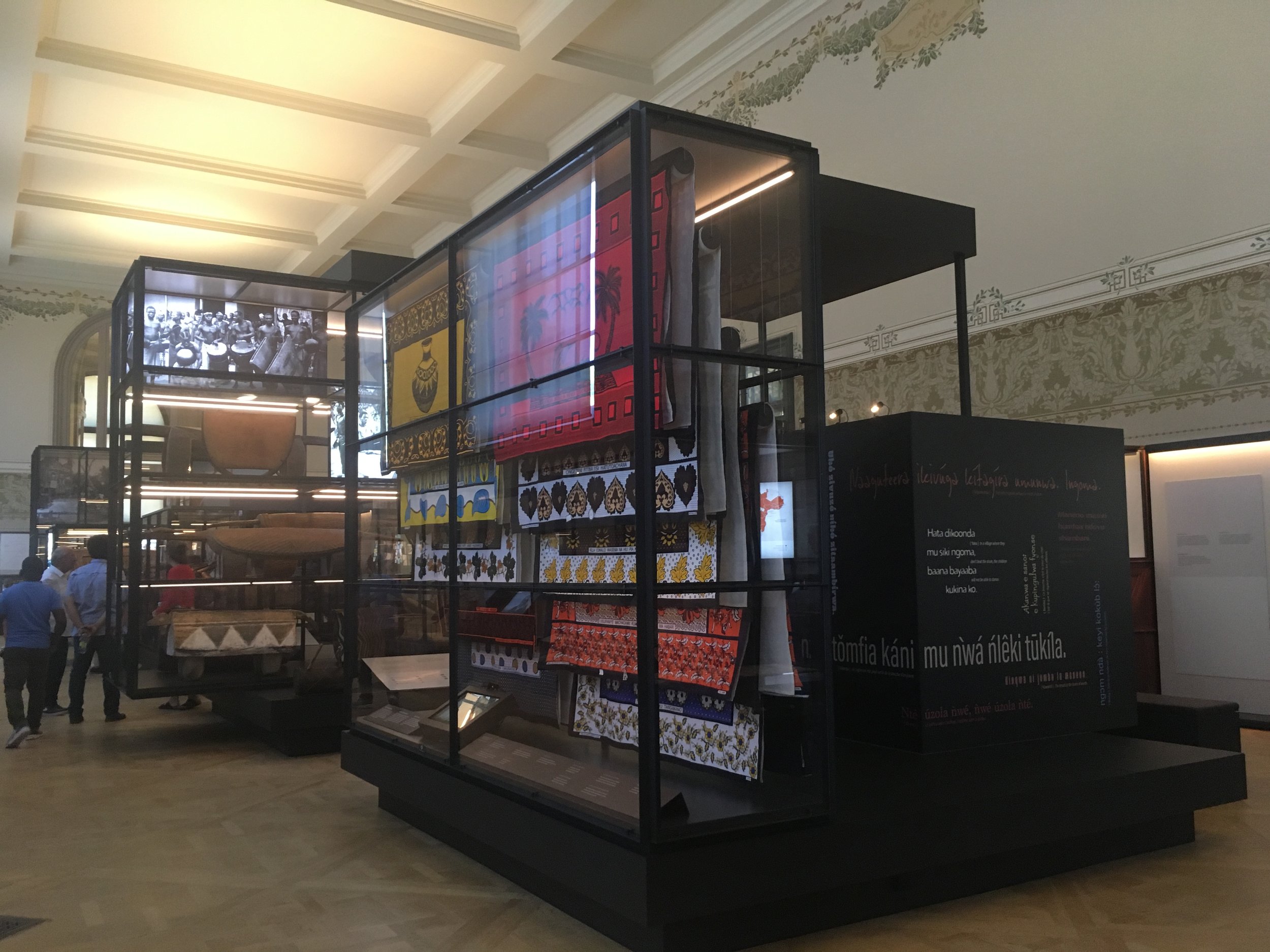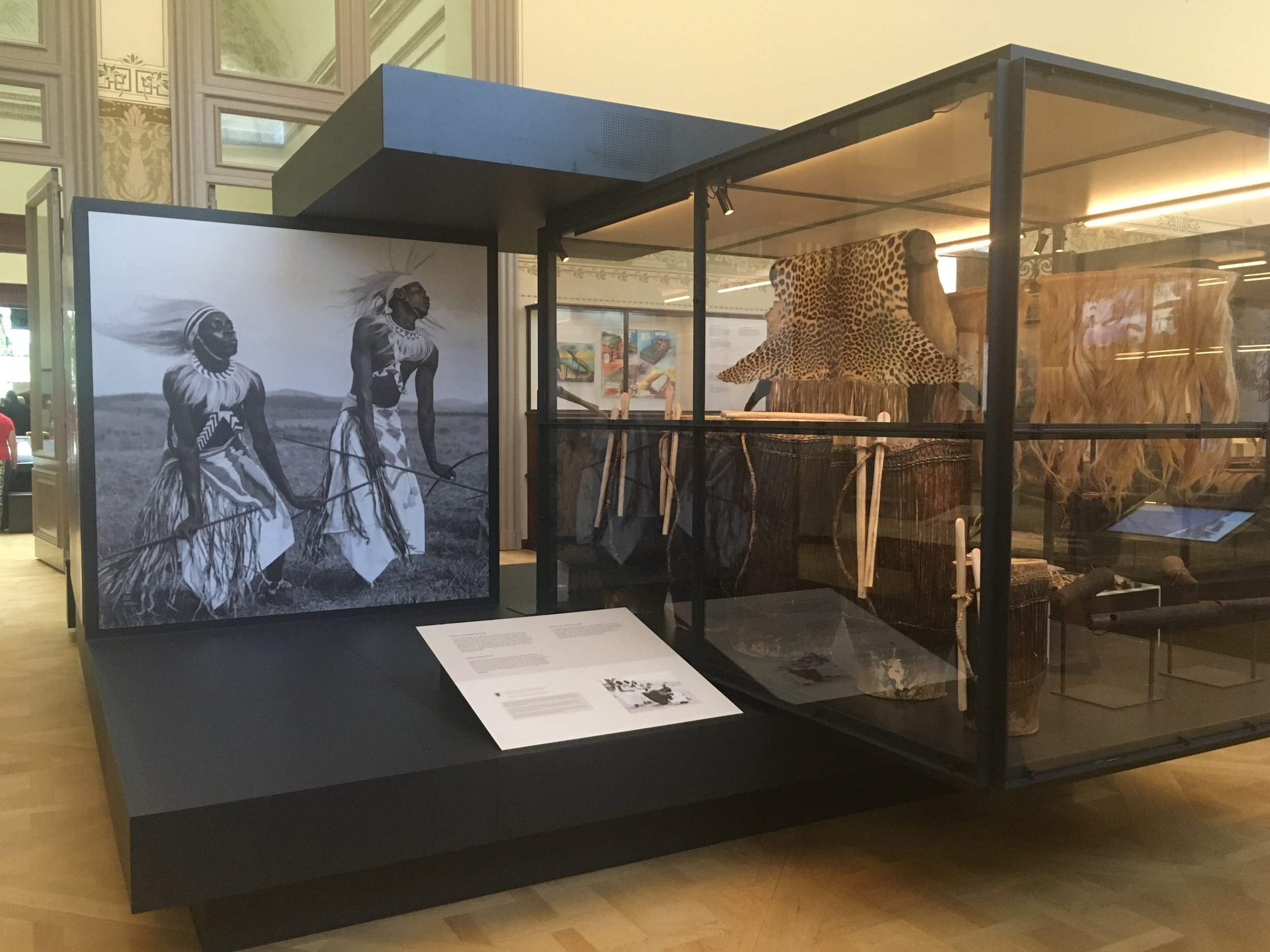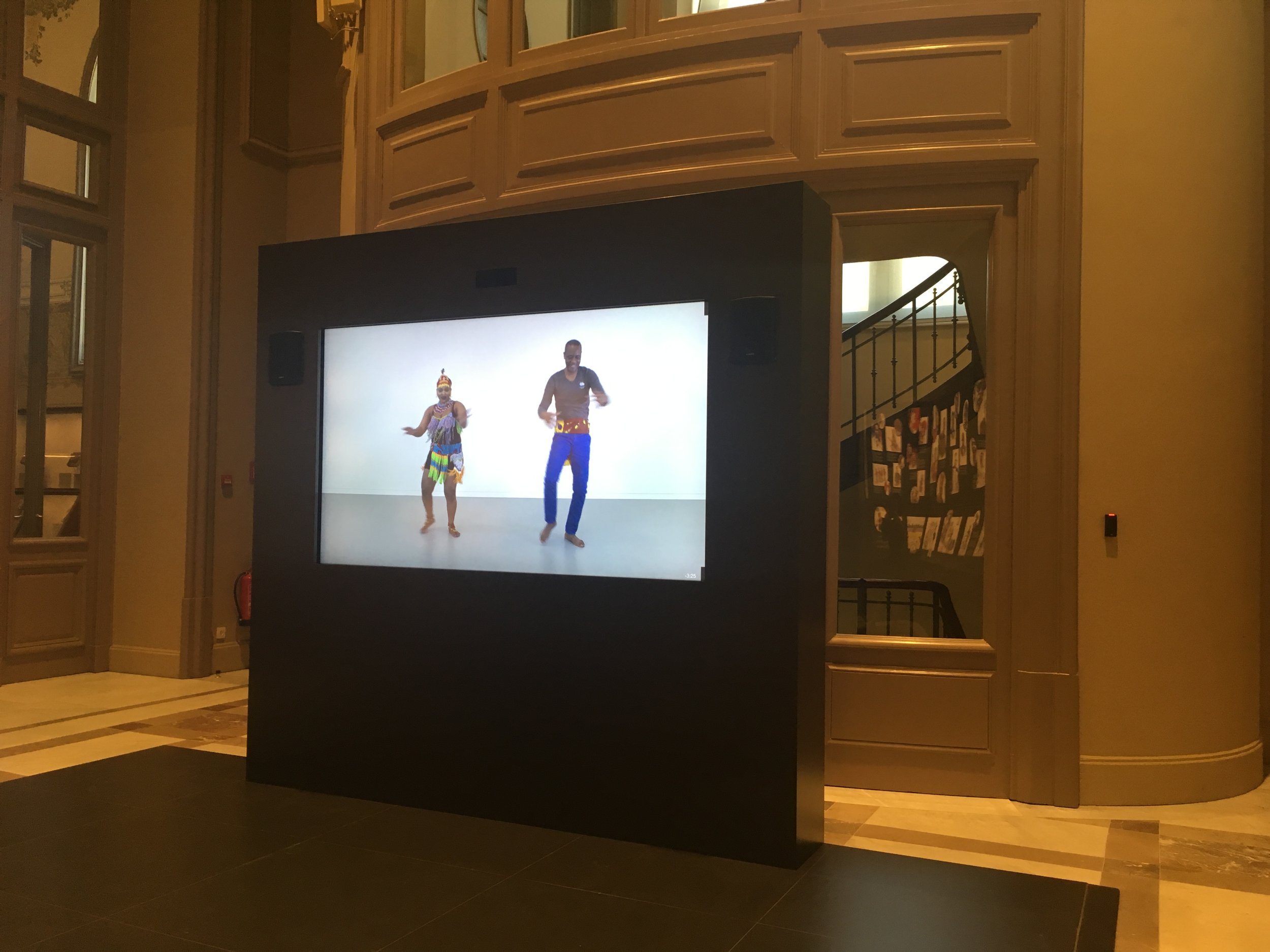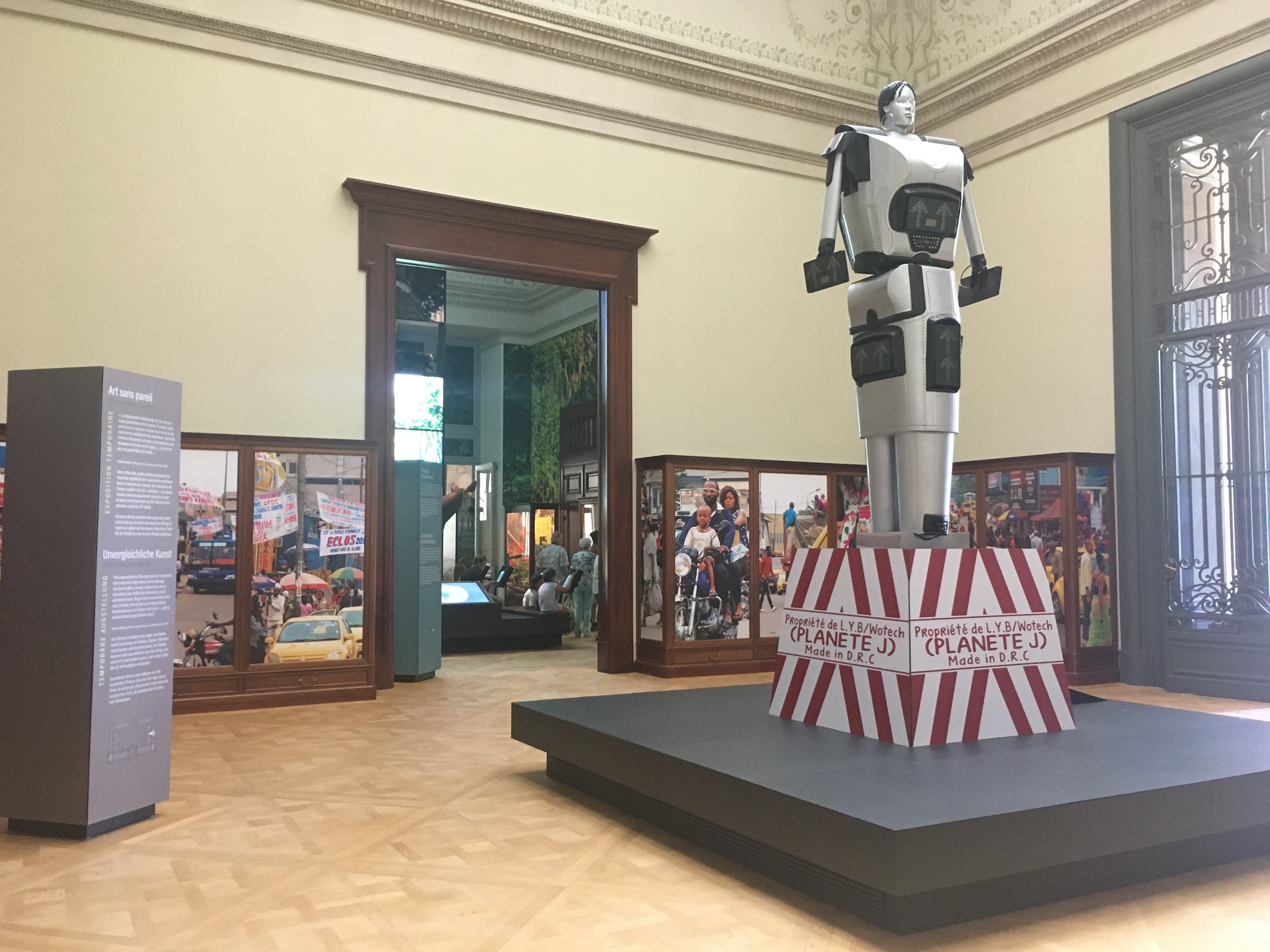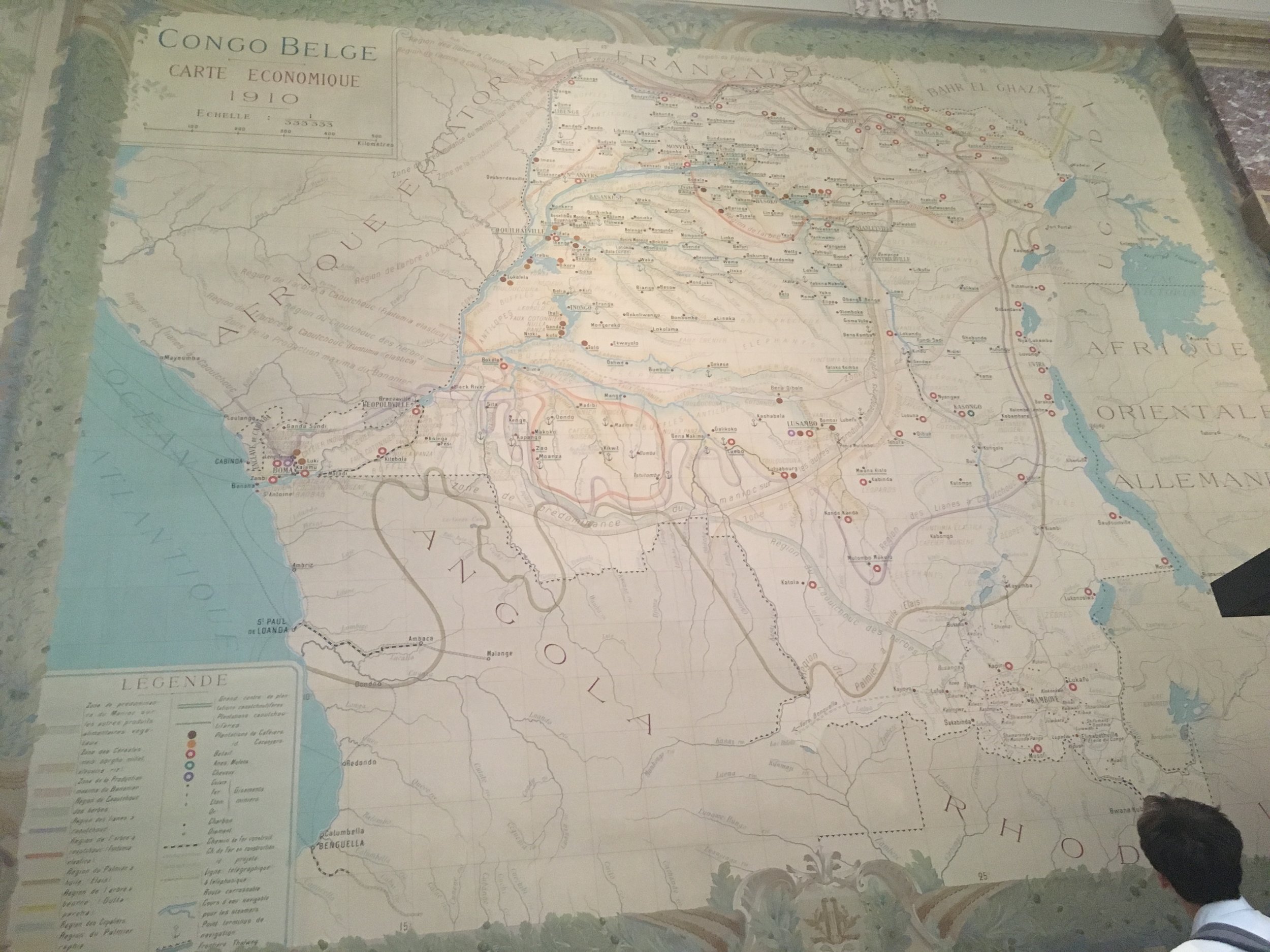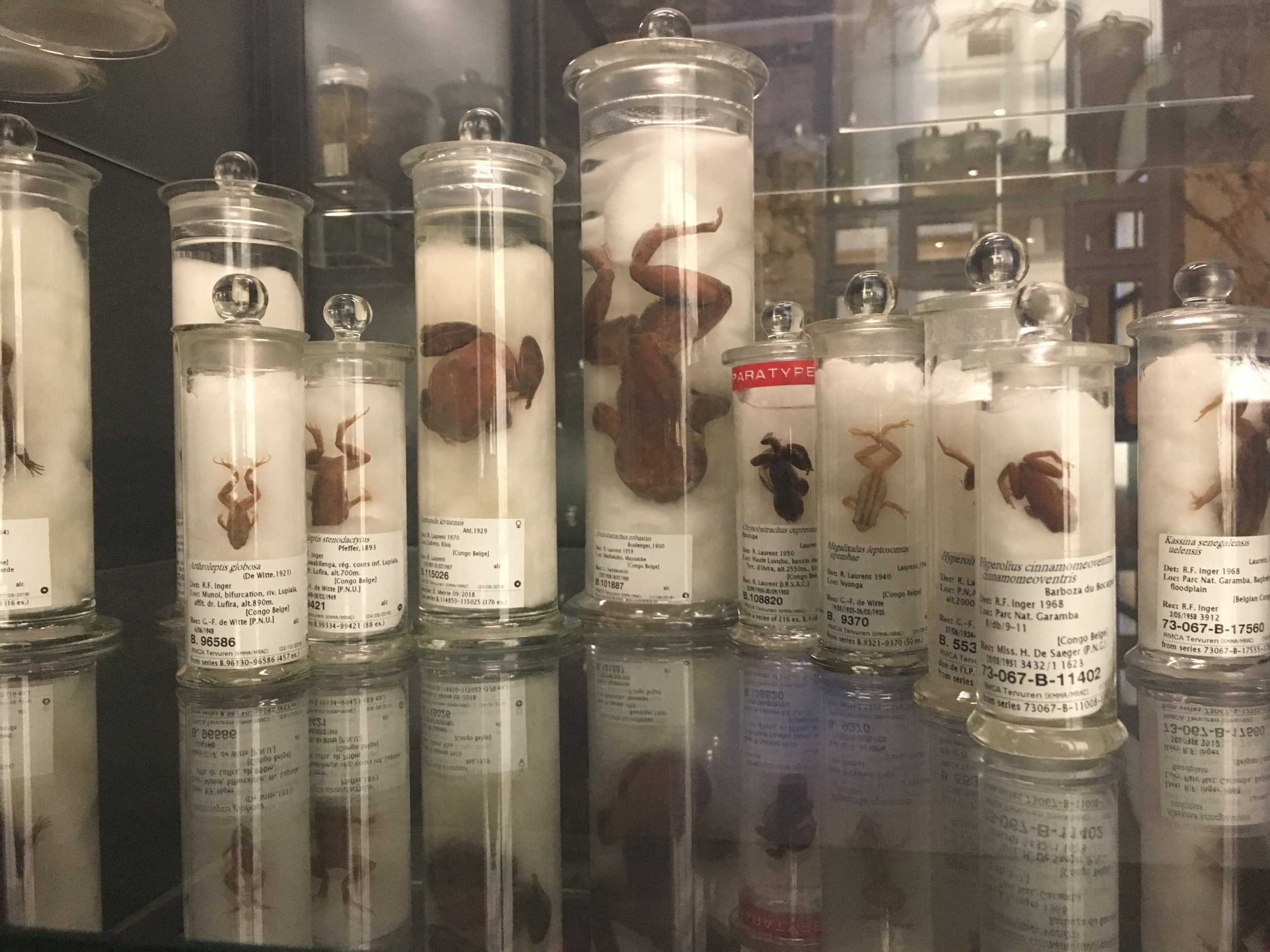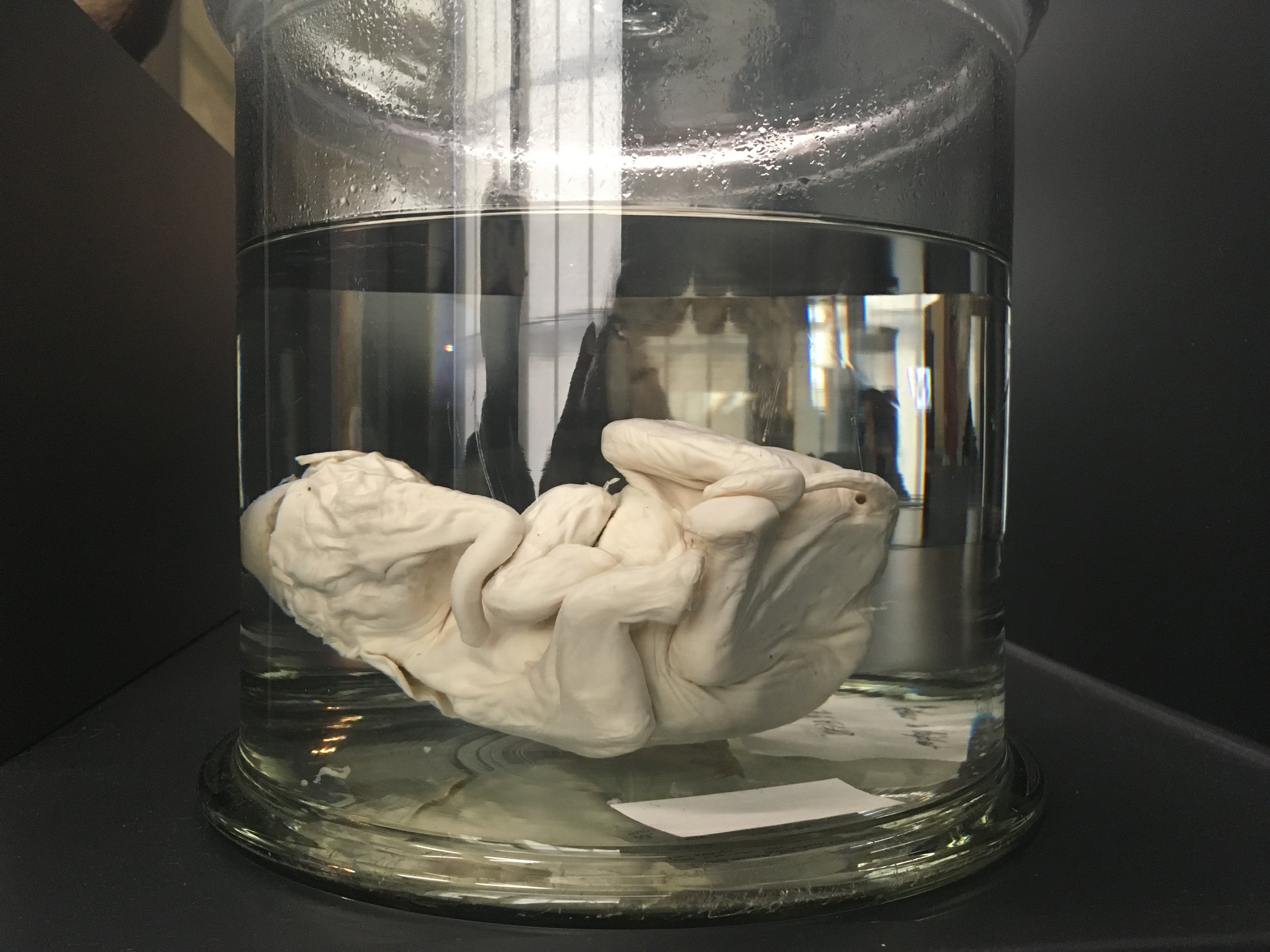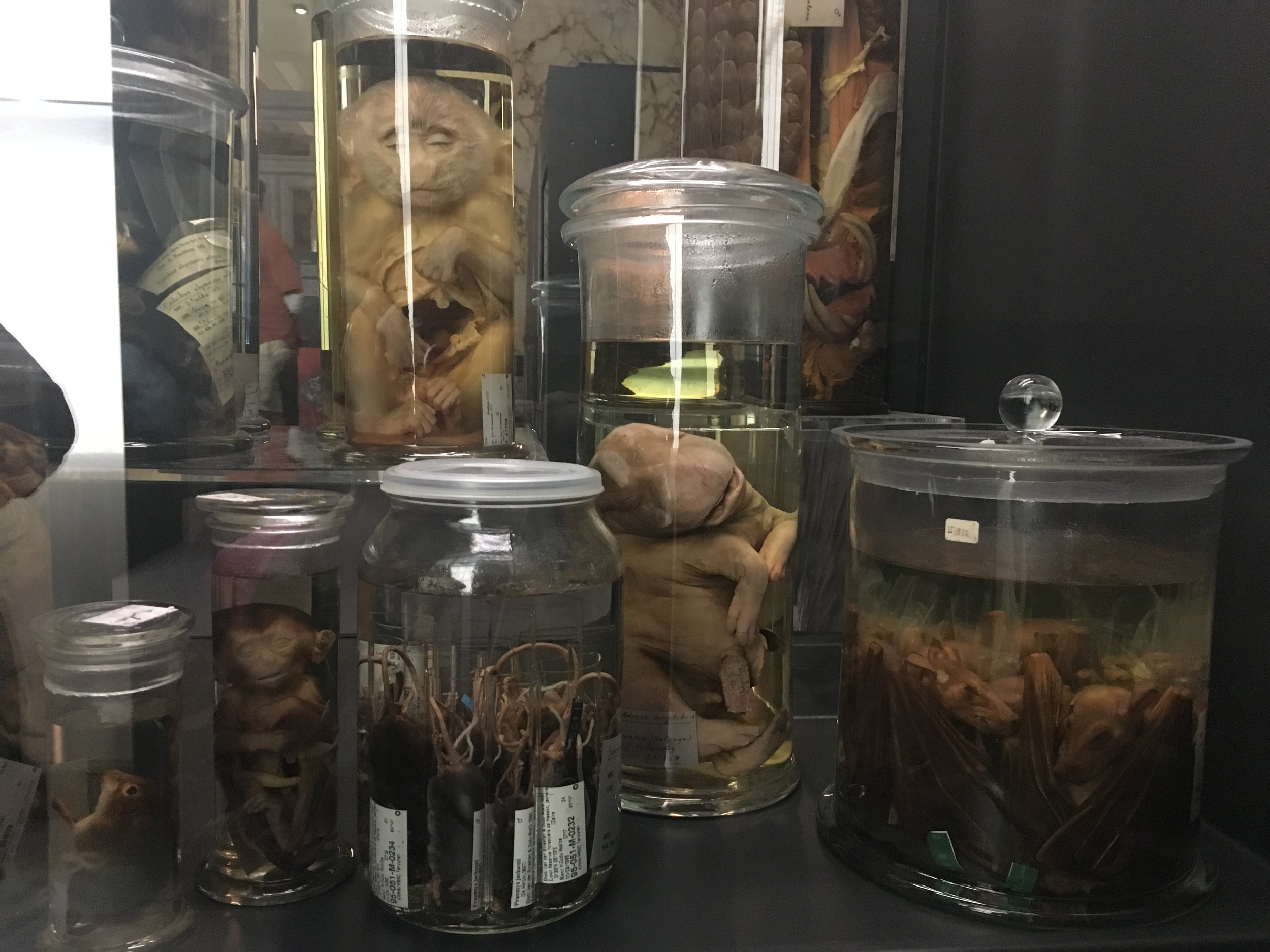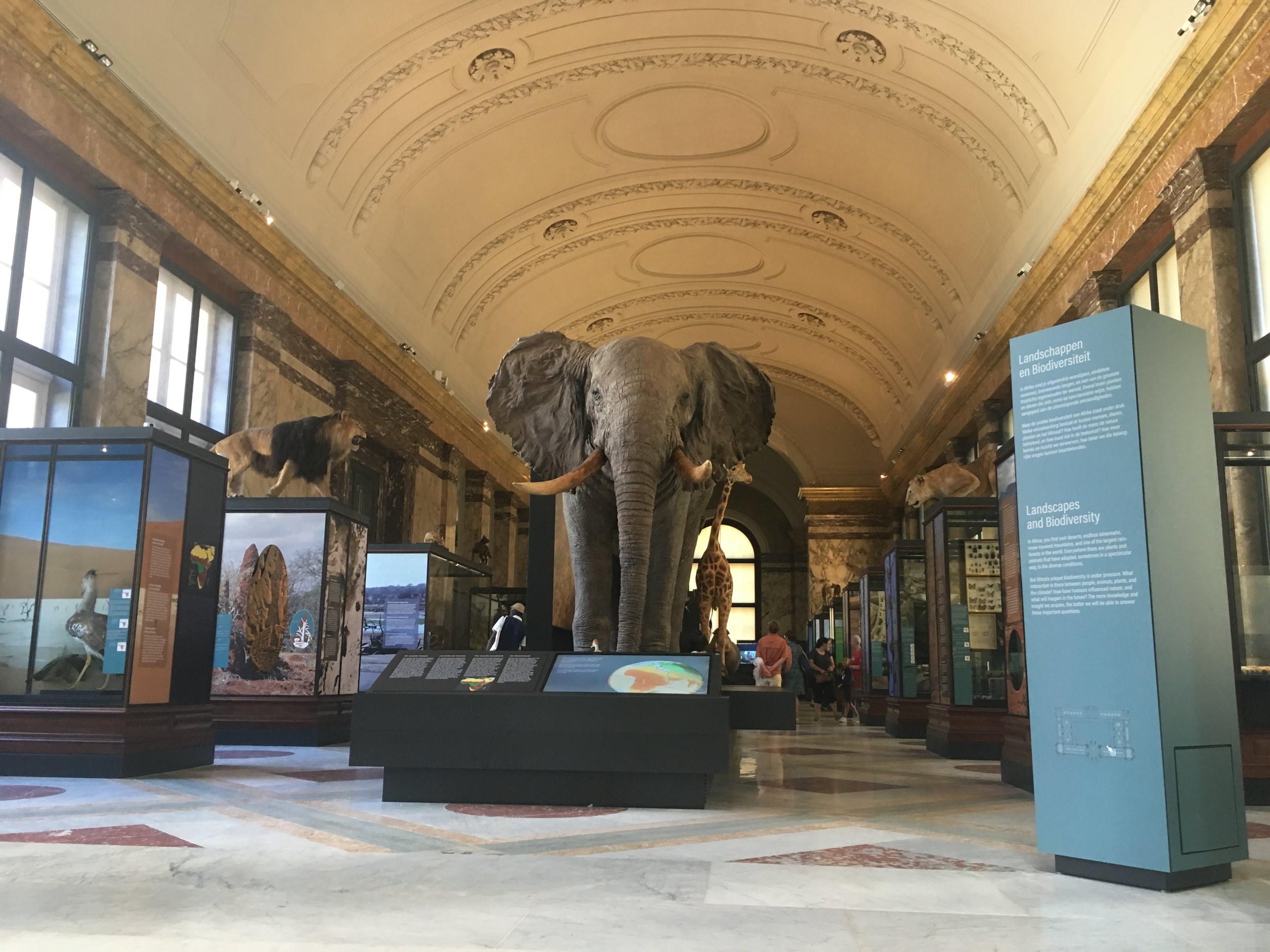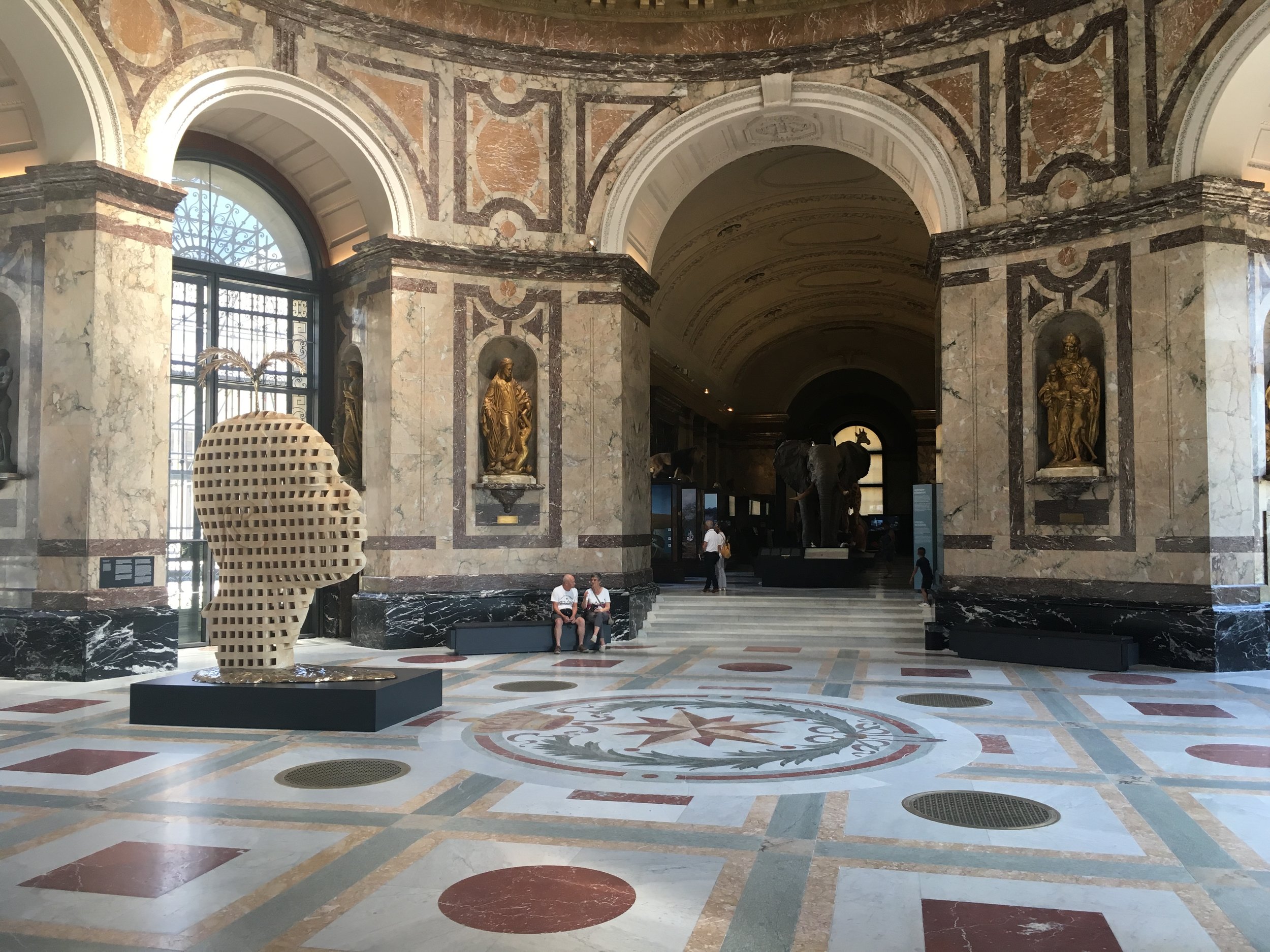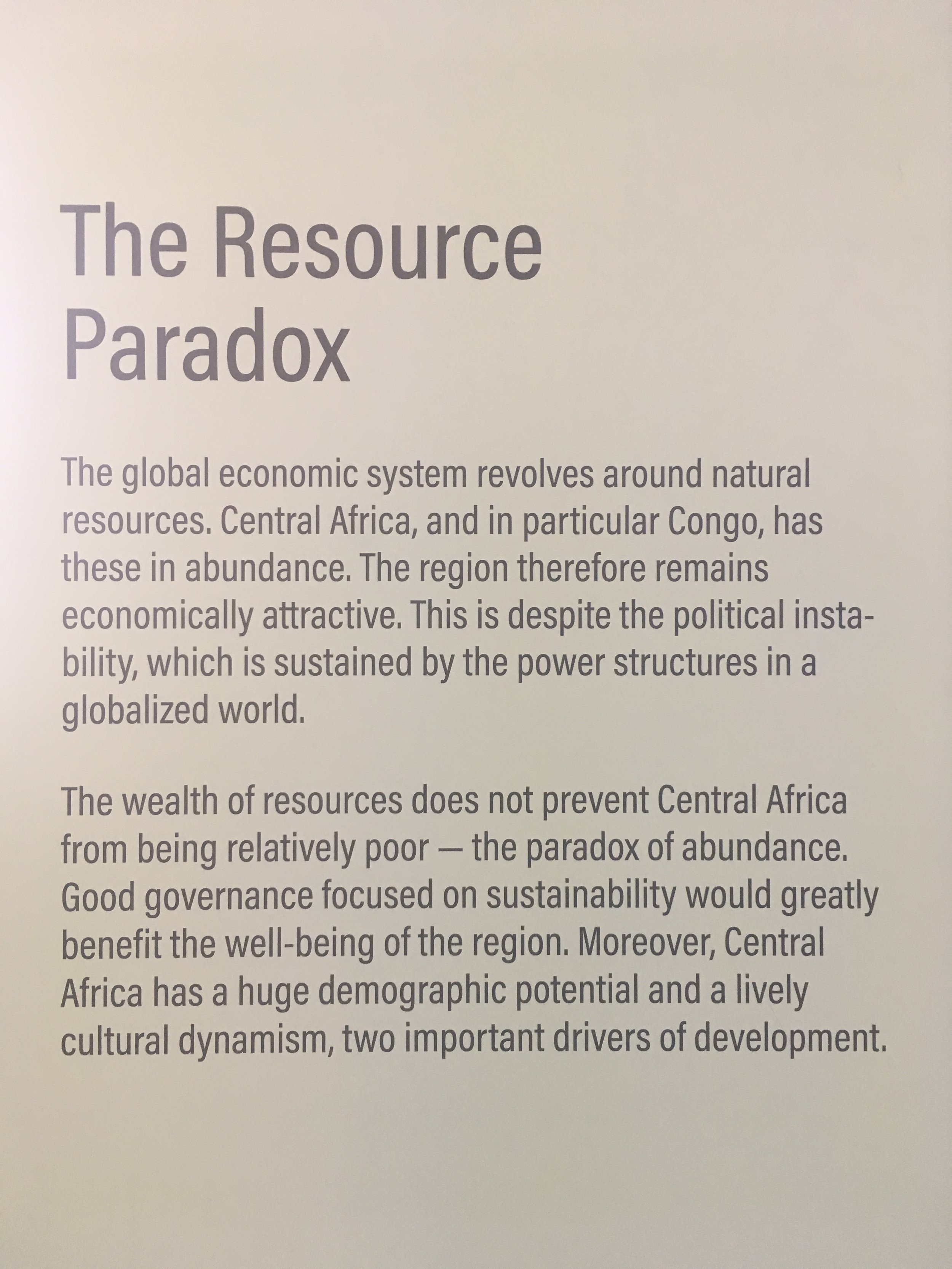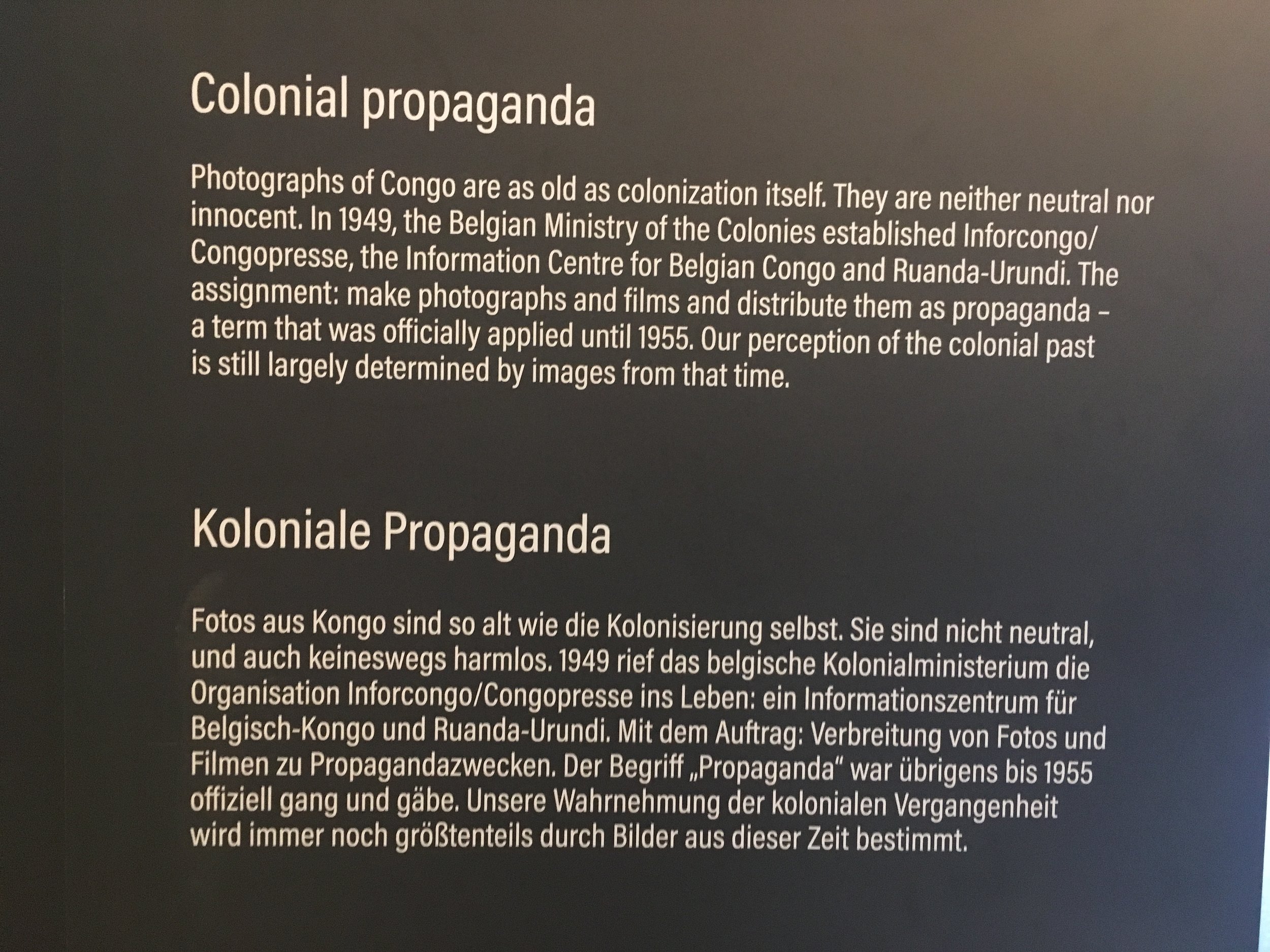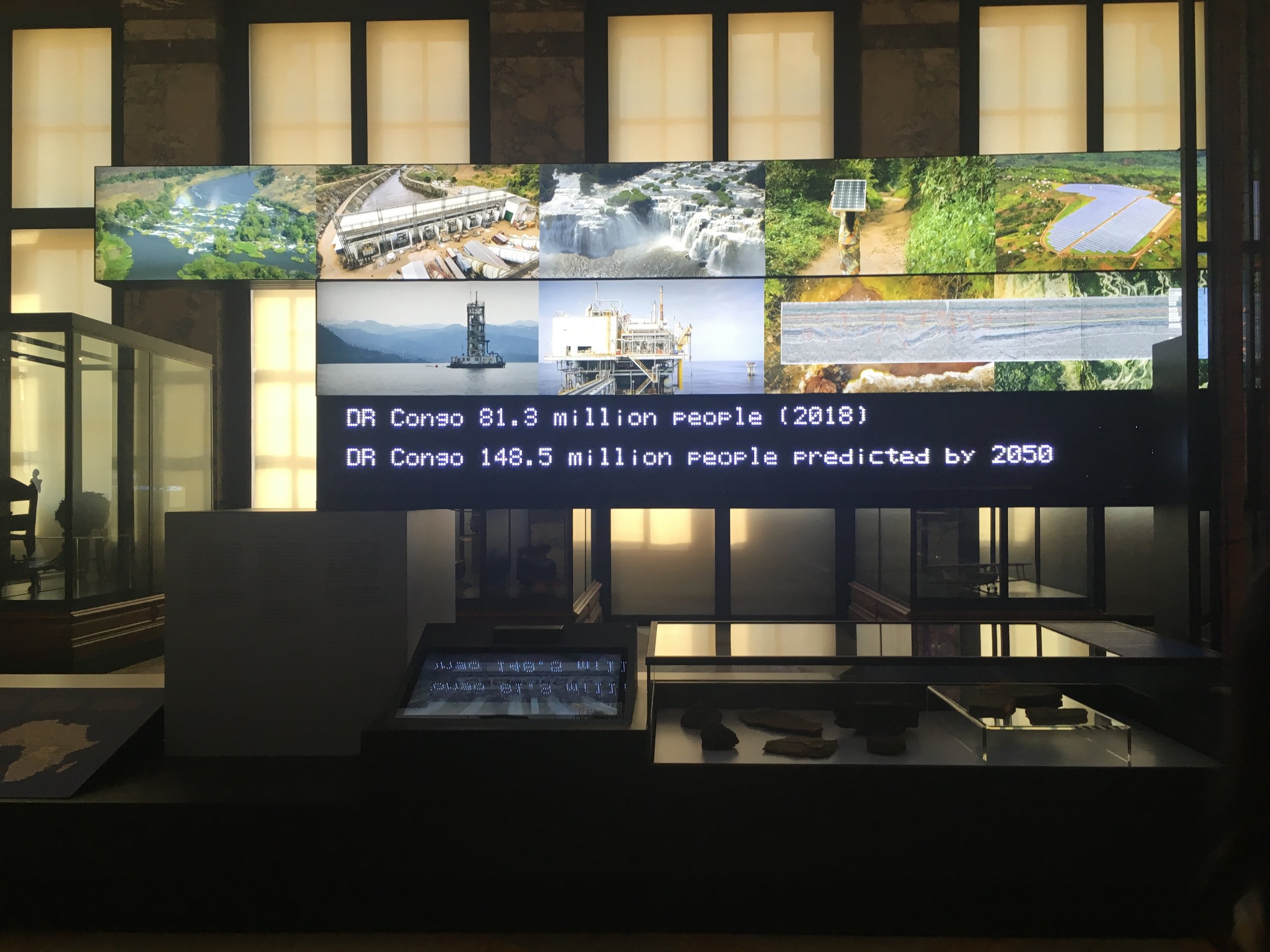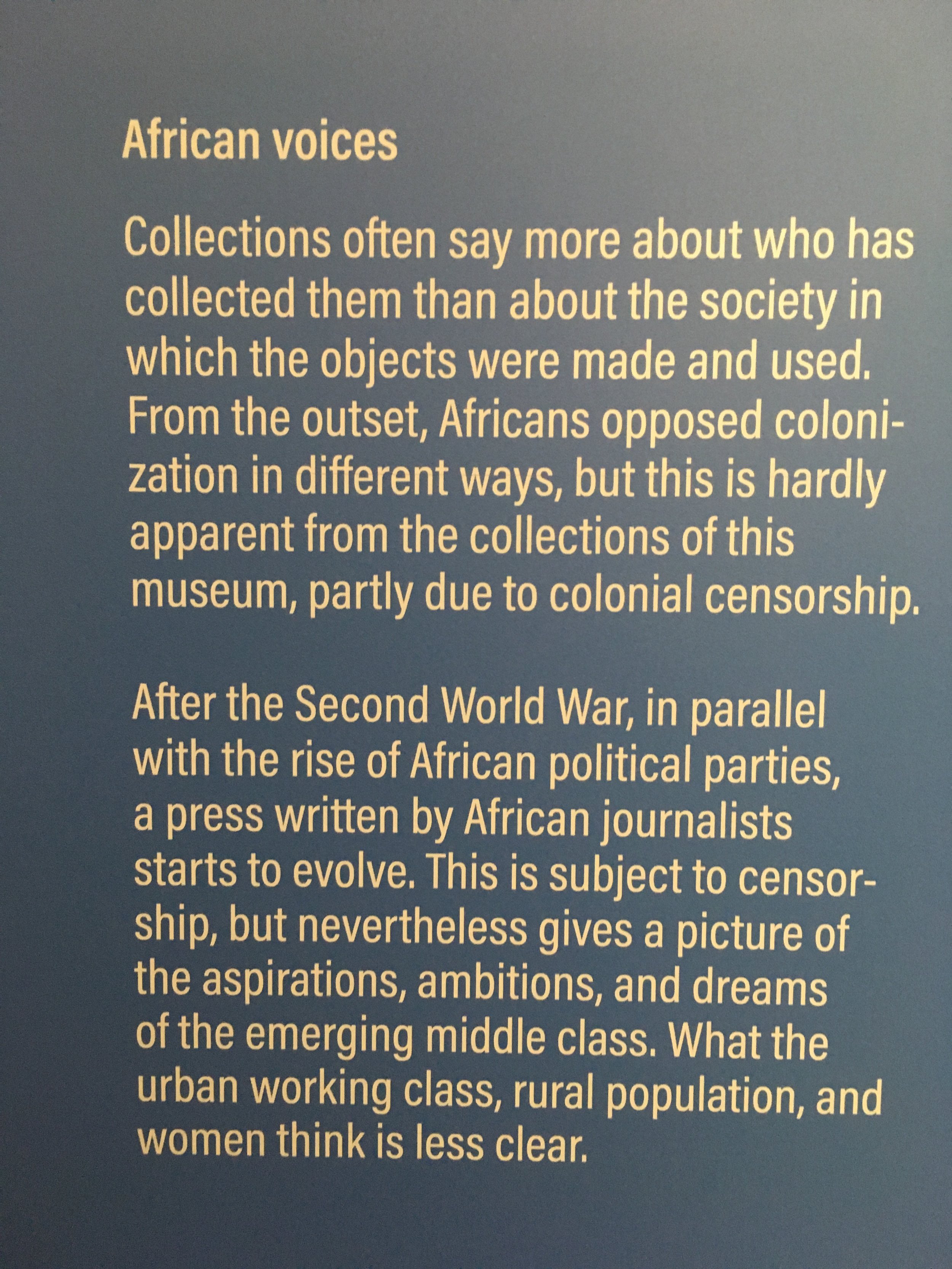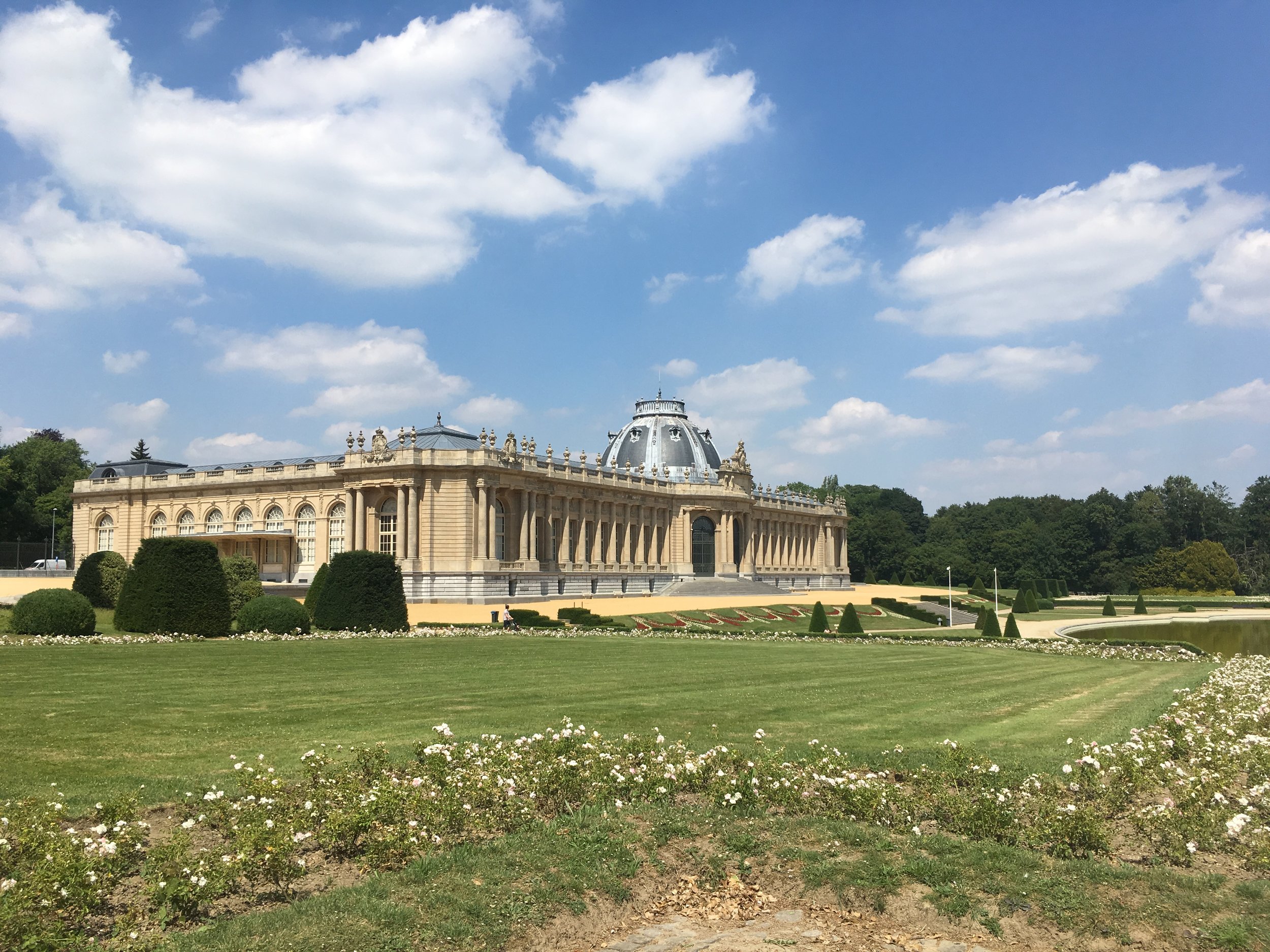The museum has been closed for a while due to “reorganising” the exhibition spaces, renovation, and architectural renewals. It reopened in December last year. With my anthropological background and worldwide discussions around such kind of colonial and ethnographical museums in mind, I couldn’t other than entering with an already critical gaze. Without knowing the museum from before it is hard to draw lines, but I just try to comment a bit on what I could see now.
First of all, the term “Africa Museum” which is not only used colloquially but also for all the museum’s outreach (website, tickets, guidance system, marketing, etc.) is quite misleading as it is about Central Africa, the region of today’s Democratic Republic of Congo (once private property of Leopold II and then colony of Belgium), Rwanda, Burundi and this region. The area where Belgians had been present and brought diverse samples to Europe. The official name Royal Museum for Central Africa is way more accurate. In my opinion the current museal representation frame is above all a great act of legitimating the museum’s existence (mostly because of its scientific research work), and always underlining that there are also African scientist involved. Without any doubt there is a huge importance within the diverse scientific approaches ranging from archeology, natural sciences, anthropology to modern technologies. Notwithstanding there is a lot of neutralisation of historical and contemporary exoticism. A high percentage of the museum is made up by early 20th century vitrine presentation of colonial collected goods, decorated with 21st century’s technology of videos and touch screens which in the end (at least for kids and myself) are more distracting than broadening the museum experience.
One can find some hints and notes on the wall texts of some rooms, but where is the real critical reflection? That should be visible in the display and the presentation, not only in marginalia and deepening texts. Press reviews state that the museum now “allows critical view on the colonial past” and I would agree, but do I have to take part in a special art mediation / reading session in the Afropea room of the permanent exhibition to get into touch with critical themes and perspectives? They gain little attention in minimal text passages in few of the rooms which are on display.
The automat-café with a black waiter serving old white people coffee in the end rounded up my impression of a not very post-colonial museum visit. In treating and facing their colonial history there is a scope left in Belgium (or at least in this museum). After all the emancipated cultural actions in Brussels - theme specific festivals, lectures, events, etc. - the visit at the newly re-opened Africa Museum was rather disappointing. Even though I didn’t come with much expectations as I’ve already heard many negative and critical voices among art and culture producers as well as activists and scientists in the field of post-colonialism in Belgium. Still, it is to emphasize that an opening up and willingness for a discourse is taking place, because there are definitely no easy answers for that problem.
For the whole blog of the brusselsARTproject click here.
